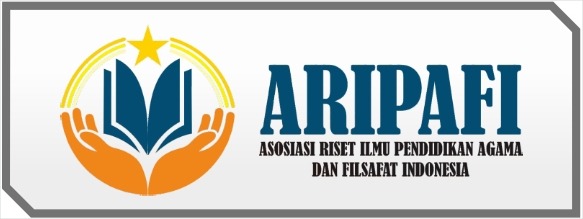Gender Equity in Islamic Marriage and Divorce: A Narrative Review
DOI:
https://doi.org/10.61194/ijis.v2i4.611Keywords:
Islamic Marriage, Islamic Divorce, Gender Equity, Family Law Reform, Domestic Violence, Feminist Legal Theory, Fiqh EducationAbstract
This narrative review examines the evolving landscape of marriage and divorce in Islamic contexts, with a focus on gender equity, legal interpretation, and socio-cultural influences. The study aims to understand the systemic barriers faced by women in initiating divorce and how legal, educational, and institutional reforms can address these challenges. Utilizing sources from Scopus, Google Scholar, JSTOR, and SpringerLink, the review analyzed literature published over the past fifteen years using keywords such as "Islamic marriage," "Islamic divorce," "fiqh," and "gender equity in Islam." The findings reveal that women often face legal and social obstacles in accessing divorce, compounded by economic dependency, limited legal knowledge, and gender-biased interpretations of Islamic law. Studies highlight the impact of educational interventions like fiqh munakahat, feminist legal reinterpretation, and national policy reforms in improving women's rights. Examples from India, Morocco, and Malaysia illustrate how legal innovation and inclusive practices can promote gender justice. The discussion emphasizes the need for systemic reforms that include educational restructuring, economic support, and protective legislation against domestic violence. In conclusion, the review advocates for context-sensitive and justice-centered reforms in Islamic family law. Emphasis is placed on legal empowerment, economic equity, and gender-sensitive interpretation of Sharia to support more equitable marital outcomes. Future research should expand in scope and methodology to ensure broader applicability and sustained social impact.
References
Alfitri. (2020). Legal protection against domestic violence in Islamic family law: A critical review of Indonesian practices. Indonesian Journal of Legal Studies, 15(2), 114–129.
Analiansyah, A., Husna, R., & Marzuki, F. (2024). Polygamy, emotional distress, and legal pathways: A study of women’s rights in Sharia courts. Journal of Islamic Family Law, 11(1), 33–50.
Badawi, A., & Nasution, R. (2021). Sexual deviance and divorce in Islamic jurisprudence: Addressing women’s rights in contemporary fatwas. Journal of Gender and Islam, 9(2), 55–73.
Baihaqi, M., Sari, R. P., & Kurniawan, A. (2022). Redefining justice in Islamic divorce: A legal and psychological perspective. Islamic Legal Review, 8(3), 91–107.
Chamsi-Pasha, H., & Albar, M. A. (2015). Family ethics in Islam: The interplay between law and culture. Journal of Bioethical Inquiry, 12(3), 487–496.
Daud, M., & Akbar, T. (2020). Customary law and Islamic legal pluralism in Aceh: The dilemma of divorced women. Jurnal Syariah dan Sosial, 7(1), 61–77.
Grillo, R. (2016). Customary practice and Islamic law in local marital disputes: A case study of Dayak Ngaju traditions. Comparative Islamic Law Journal, 4(1), 22–36.
Jaraba, M. (2020). Legal pluralism in Palestine: Women's access to justice and Islamic family law. Journal of Middle Eastern Legal Studies, 11(2), 113–132.
Jones, J. (2019). Sharia courts and gender justice in India: Empowerment through female leadership. Law & Society Review, 53(4), 1024–1047.
Kusrin, Z., Munira, N., & Hanifah, R. (2024). Education, empowerment, and equitable divorce outcomes: Malaysian evidence. Southeast Asian Review of Law and Society, 6(1), 70–85.
Maimun, A., Rohman, R., & Wahidah, S. (2020). Fiqh munakahat in higher education: Strategies for reducing divorce through legal education. Journal of Islamic Studies and Law, 10(2), 144–160.
Mahamid, F., Ayyash-Abdo, H., & Elbedour, S. (2023). Legal support systems for domestic violence victims in Islamic societies. Journal of Family Law and Policy, 9(1), 30–46.
Minganti, B. (2016). Muslim divorce and stigma in conservative European communities. Islam and Gender Studies Journal, 3(2), 115–128.
Muhammad, A., Rahmawati, N., & Fadhlina, A. (2021). Economic hardship and women’s legal access to divorce in Islamic family law. Sharia and Society Journal, 5(1), 88–102.
Novitasari, S., Wijaya, A., & Hartanti, F. (2016). Regional policy and declining divorce rates in pro-women jurisdictions of Indonesia. Indonesian Journal of Family Policy, 4(2), 120–136.
Platt, A. (2017). Legal reform and gender equity in Moroccan family law: The case of the Mudawana. Law and Reform Journal, 13(3), 207–223.
Prabowo, A., Azizah, N., & Fauzan, F. (2024). Maqasid al-sharia and gender justice in Islamic family law. Journal of Islamic Reform Studies, 12(1), 65–81.
Ridhwan, H., & Nuzul, A. (2020). Cultural resistance and the gender gap in Islamic legal implementation. Comparative Islamic Law Review, 6(1), 48–64. DOI: https://doi.org/10.22373/sjhk.v5i1.8977
Salsalbila, N., Fauziah, D., & Mahendra, Y. (2022). Financial neglect and divorce in Islamic courts: A socio-legal analysis. Indonesian Journal of Islamic Law and Society, 8(2), 99–116.
Shahin, M. (2020). Islamic feminism and legal reinterpretation: Toward equitable family law. Journal of Feminist Legal Thought, 14(1), 25–40.
Uhlman, K., & Kisselburg, A. (2013). Legal humanism in Turkey's Islamic marriage reform. Journal of Middle Eastern Legal Studies, 5(3), 137–151.
Wardatun, S., & Smith, K. (2020). Redefining sexual rights in Islamic marriages: A cross-cultural inquiry. Journal of Gender and Religion, 8(2), 44–59.
Yılmaz, S. (2017). Justice-oriented reform in Turkish Islamic family law: The role of maqashid. Turkish Journal of Law and Religion, 7(1), 90–105.






